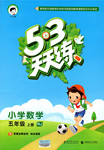题目内容
17.They tell us when to get up or when we're running late for work and whether we are in danger of missing our favourite TV programme.But while our daily routines rely on clocks that tell us the time,science is discovering that our well-being is influenced by a very different kind of timepiece.Circadian rhythms(生理节奏)-the human body's own internal clock-have a powerful influence on our health and behaviour. They are programmed from birth and control functions ranging from temperature and blood pressure to sleep patterns.In recent years researchers have also discovered that this built-in mechanism(机能)can influence everything from the way we react to medicines to how well we learn music.
The latest example,from experts at Harvard University in the US,shows that the human body clock can even tell whether or not we are likely to tell the truth.Researchers found it was easier for people to lie in the afternoon because,as they were tired,the self control that would normally prevent them from lying started to break down.Tiredness made it harder to resist the temptation to tell lies-especially if it meant they got a financial reward at the end.
"The body clock has a great effect on us all,"says Professor Jim Horne from the Sleep Research Centre at Loughborough University."Most people tend to feel good around late morning and then decline in the early afternoon.But the time most of us will feel our sharpest is between 6pm and 8pm.That's because sleepiness tends to build up throughout the day.By early evening our body clock kicks in to wake us up.One reason may be to ensure we get home safely.When our ancestors were coming home after hunting all day their internal clocks kicked in to get them home in one piece."
So what effects do circadian rhythms have and what's the best time of day to take advantage of them?
66.The underlined word"They"in the first paragraph refers toD.
A.our clocks
B.scientists and experts
C.our daily routines
D.circadian rhythms
67.The research referred to in Paragraph 3found that people tend toA.
A.tell lies when they are tired
B.tell lies if they are rewarded
C.lose temper as they become tired
D.break down because they are tired
68.According to the passage,when are people most quick-thinking?D
A.In the morning.
B.Around midday.
C.In the late afternoon.
D.In the early evening.
69.What information will the writer probably present following the last paragraph?C
A.Some practical suggestions to prevent people from lying.
B.Examples of how the human body clocks control the body.
C.Examples of the most suitable time to do different activities.
D.An explanation of how the human body clock controls the body.
70.What is the best title for the passage?B
A.Rebuild Your Body Clock.
B.Timing Is Everything.
C.Sleep More,Lie Less.
D.Your Time Is Up.
分析 本文是一篇说明文,文章主要介绍了人体中的昼夜节律我们的身体健康和行为有很强大的影响,对我们时间安排有影响,我们的一些日常活动都受它的影响,最近研究表明生物钟还可以分辨我们是否有可能说谎,人们在疲劳的时候更容易撒谎,人们在傍晚的时候是思维最敏捷的时候.
解答 66.D 词义猜测题.根据第一段中"Circadian rhythms---the human body's own internal clock---have a powerful influence on our health and behaviour."可知,人体内在的生物钟即昼夜节律对我们的身体健康和行为有很强大的影响,因此下文的"they"指的是"Circadian rhythms--昼夜节律",故选D.
67.A 细节理解题.根据第三段中的"researchers found it was easier for people to fib(撒小谎) in the afternoon because,as they were tired,the self control that would normally prevent them from lying started to break down."可知,人们在疲劳的时候更容易撒谎,故选A.
68.D 细节理解题.根据第四段中的"But the time most of us will feel our sharpest is between 6pm and 8pm.That's because sleepiness tends to build up throughout the day.By early evening our body clock kicks in to wake us up."可知,人们在傍晚的时候是思维最敏捷的时候,故选D.
69.C 推理判断题.根据文章最后一段"So what effects do circadian rhythms have and what's the best time of day to take advantage of them?"可知,下面的内容应该是举例说明最适合做什么事情的时间,故选C.
70.B 主旨大意题.根据全篇文章和第一段的句子"But while our daily routines rely on clocks that tell us the time,science is discovering that our well-being is influenced by a very different kind of timepiece."可知,文章主要介绍了人体中的昼夜节律对我们时间安排的影响,也就是说时间安排就是一切,故选B.
点评 解答细节理解题时,一个常用的方法就是运用定位法,即根据题干和选项中的关键词从原文中找到相关的句子,与选项进行比较从而确定答案;推理判断题既要求学生透过文章表面文字信息推测文章隐含意思,又要求学生对作者的态度、意图及文章细节的发展作正确的推理判断,力求从作者的角度去考虑,不要固守自己的看法或观点.

 53天天练系列答案
53天天练系列答案| A. | In case | B. | Now that | C. | Even if | D. | As though |
| A. | among | B. | between | C. | through | D. | during |
-Oh,to tell the truth,that's makes me feel excited.( )
| A. | What | B. | how | C. | that | D. | why |
| A. | What | B. | Which | C. | That | D. | Who |
| A. | which | B. | since | C. | when | D. | that |